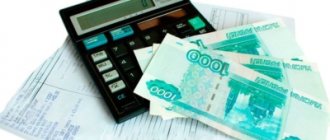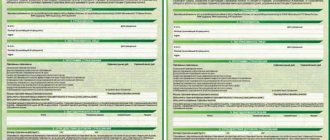Who pays for notary services when buying an apartment? This question puzzles a large number of people who are planning to make a real estate purchase or sale transaction. Without certain notary services, it is impossible to carry out a real estate transaction and the work of a notary was, is and remains paid.
The buyer of a residential property must keep in mind that, in addition to paying the principal amount for the property, additional expenses will have to be incurred.
The basis of the transaction involves paying the state fee, issuing the necessary certificates, such as an extract from the housing and communal trust about the absence of debt for real estate, renting a safe deposit box in a bank, the services of a realtor, and also a notary.
The parties agree among themselves on the procedure for payment for all stages of the transaction, since Russian legislation does not clearly define who exactly needs to pay for all actions, the buyer or the seller.
ATTENTION! When making a purchase or sale, the buyer is responsible for paying for everything that relates to his documents, certificates and entry into the right to real estate. Also, if a transaction is carried out under a mortgage scheme, the buyer also bears all costs.
Purchasing an apartment or any other object always involves significant financial expenses on the part of the buyer. In addition to the basic payment for the property, it is necessary to take into account additional costs associated with its re-registration.
Since the law does not stipulate who exactly, the buyer or seller, must pay for the transaction, a tradition has developed in the real estate industry regarding this important point.
Payment of state duty
It is impossible to complete a transaction without a state duty, so it is a mandatory point when drawing up an agreement for the purchase and sale of an apartment. The buyer, as the person purchasing the property, is responsible for registering ownership of the apartment. But still, both parties can agree among themselves on a different payment procedure.
For individuals, the amount of payment for the state duty is two thousand rubles. But when a transaction is concluded by legal entities, the amount of state duty increases significantly and is already twenty-two thousand rubles.
The buyer must register changes in the right to transfer ownership of the apartment to him in the cadastral chamber.
In this case, registration occurs without charging any amount from the applicant.
Results
Persons who used the right to deduction before 2001 have the right to re-deduction for another item. Taxpayers are also entitled to receive the remainder of the unused deduction. For clarification of your rights in each specific case, it is best to contact a tax consultant with a package of documents for the apartment, and then with an application to the inspector of the Federal Tax Service.
Find out about the nuances of taxing employee income with personal income tax in our “Personal Income Tax” section.
You can find more complete information on the topic in ConsultantPlus. Free trial access to the system for 2 days.
Purchase and sale agreement
The seller and buyer can draw up an agreement independently, without the participation of intermediaries. But this option does not suit everyone, so they often resort to the help of a notary, lawyer or real estate agency.
The cost of work almost always varies and depends on the complexity of the transaction. Typically, contract costs are imposed on the person purchasing the property.
This is justified by the fact that it is important for the buyer to correctly prepare all the necessary documents. If both parties decide to use the services of a real estate agency, then drawing up the purchase and sale paperwork may be included in the total amount of their work. This is acceptable if the agency has a housing lawyer, but then the cost of services increases sharply.
Paperwork
Completing all documentation is an integral part of all expenses. They include both necessary documents, without which it is impossible to carry out a transaction, and optional documents. The presence of such documents, although not a necessary condition, will still help to avoid many nuances after signing the contract itself.
ATTENTION! The seller needs to take a cadastral passport, an extract from the Unified State Register, a certificate of persons registered in the property, a certificate of absence of debts from the housing and communal trust
The buyer can provide an extract from a psycho-narcological dispensary stating that he is not registered. Again, this certificate is not considered mandatory.
There is a rule that the one who needs them pays for the preparation of all documents. The one who sells the apartment receives all the necessary papers for the property, since he is the owner of the apartment. If the buyer wants to speed up the procedure for drawing up documents and the transaction itself, then he assumes all financial costs.
The transaction is made more transparent by a certificate of absence of housing debts, although its provision is not mandatory. If the buyer wishes to clarify this point, he can independently obtain a certificate.
Unused balance
The Tax Code of the Russian Federation sets an upper limit on the amount that can be returned from the budget:
- 260 thousand rubles. for the purchase or construction of an object;
- 390 thousand rubles. for an object purchased with a mortgage.
But the actual amount to be refunded depends on the individual’s income. It often happens that a taxpayer can return only part of the amount allowed for refund, because he did not pay a sufficient amount of personal income tax on his income to the budget.
In this case, the homeowner has an unused deduction balance, which can be received later. Thus, you can apply to the Federal Tax Service for a deduction not only once, but until the entire available limit is exhausted.
However, when applying to the Federal Tax Service again, you should keep in mind several nuances.
First, you need to take into account the year you purchased your home. If it was purchased between 2003 and 2007, you can return only 13% of 1 million rubles. If the property was purchased in 2008 or later, you can return 13% of 2 million rubles. Therefore, the amount of the unused deduction balance must be calculated correctly.
Secondly, when purchasing an object before 2014, the deduction can be obtained only for it, without transferring the balance of the deduction to another object. Since 2014, you can return the balance of the deduction when purchasing another home.
Same with the mortgage deduction. When purchasing an apartment with a mortgage before 2014, the deduction could only be used together with the main deduction and only for the same apartment.
But if a citizen purchased a property with a mortgage in 2014 or later and did not previously use the mortgage loan deduction, then it can be used when purchasing a new home (even if the main deduction was received before 2014). This is confirmed by officials (letter of the Ministry of Finance of the Russian Federation dated May 14, 2015 No. 03-04-07/27582). Thus, an individual has the right to receive an additional 390 thousand rubles.
If both deductions are used, then the owner’s spouse can receive a second deduction, provided that:
- the spouse has not yet exercised his right to deduction;
- the home was purchased during marriage.
Controversial issues related to a spouse receiving a property deduction for personal income tax when purchasing housing are discussed in the Encyclopedia of Disputed Situations regarding Personal Income Tax. You can get a free trial access to K+ and see how such controversial situations are resolved.
Rent a safe deposit box in a bank
When making transactions involving large sums of money, they often rent a safe deposit box in a bank. In this case, the document specifies the conditions under which each party is allowed access to the money deposited. Currently, the amount for renting a safe deposit box in a bank is four thousand rubles.
Also, it is worth considering the deposit, which ranges from three to four thousand rubles. Further, this amount is returned to the payer after the completion of the real estate transaction.
The cost of renting the cell is the responsibility of the buyer of the property, but again, both parties can agree to pay the entire amount in equal shares. The rental period is usually thirty days, during which time both parties must complete all necessary documentation for the property.
The seller can access the money in the safe deposit box no earlier than 13 days from the date of its rental. Such a clause must be specified in the banking agreement.
If for some reason the transaction is not completed within the required time frame, then both parties need to contact the bank branch again in order to extend the lease of the locker. For this procedure, it is important to provide a certificate or document indicating the fact of renewal of the real estate transaction.
Limitation period for receiving tax deductions
The right to receive a repeated tax deduction are those property owners who bought or built a property before 2001 and received the first tax deduction also before 2001.
The fact is that before this period, personal income tax refunds were made in accordance with the Law “On Personal Income Tax” dated December 7, 1991. The amount to be deducted was then relatively small.
Then the basis for the return of personal income tax became Art. 220 of the Tax Code of the Russian Federation, which allows you to apply a deduction first in the amount of up to 1 million rubles. (since 2003), and since 2008 - already in the amount of 2 million (at the personal income tax rate of 13%, the amount to be returned is 260 thousand rubles). When purchasing an object with a mortgage, you have the right to an additional property deduction of 3 million rubles. (amount to be refunded - up to 390 thousand rubles).
All the details of obtaining a property tax deduction for interest on a mortgage loan were reviewed by ConsultantPlus experts. You can access the explanations for free right now by signing up for a trial online access to K+.
The Constitutional Court of the Russian Federation, in its ruling dated April 15, 2008 No. 311-О-О, explained that if a person exercised the right to a tax deduction before the entry into force of Art. 220 of the Tax Code of the Russian Federation, this does not entail the loss of the right to use the deduction after the entry into force of this article.
In practice, this means that, having bought an apartment, house or share before 2001 and returned the personal income tax, a person can once again return the personal income tax for a property acquired, for example, in 2002 and later. This rule also applies to the mortgage interest deduction.
Notary Services
The services of a notary are resorted to quite often, especially when it is necessary to draw up additional papers when drawing up a purchase and sale agreement. Such documentation includes:
- General power of attorney, when one of the parties is not able to be present at the conclusion of the transaction.
- The spouse’s consent to the sale of a residential property, if he or she is a shared owner or if this apartment belongs to common property.
- Consent of the spouse of the person purchasing housing when jointly acquired funds are used to purchase an apartment.
The cost of services for preparing such documentation consists of two stages. This is payment of the state fee to certify documents and, of course, the notary's markup. Prices always vary and are assigned to the party that needs to receive them.
Also, a notarized conclusion of the purchase and sale transaction of an object is necessary when the purchase of an apartment is carried out using mortgage money.
This condition is considered mandatory when drawing up such agreements in accordance with current Russian legislation.
This list of expenses must be paid by the one who purchases the property, since registration of a mortgage transaction is approximately 1.5% of the total cost of the purchased apartment.
Will with extra charge
This dispute began in Cheboksary, where an heir came to the district court with a complaint against a private notary. The notary refused to issue the citizen a certificate of right to inheritance and a certificate of ownership of a share in the common property of the spouses. The notary motivated her refusal by the fact that the heir did not pay for “additional services of a legal and technical nature.” In court, the plaintiff asked to recognize the notary's demands as illegal and to issue him the required documents.
The problems began when the man's wife died. During their lifetime, the couple acquired an apartment, a garage with a cellar and non-residential premises. As a widower, the person was entitled to half of the remaining property.
The prices that the notary charged the widower were as follows. The heir must pay the notary fee - 11,476 rubles. This amount included state fees for issuing certificates of ownership of shares in an apartment and garage - 200 rubles each. And a certificate of the right to inherit a share in the garage - issuing it cost 76 rubles. The main expense item - 11 thousand rubles - was designated as “additional services of a legal and technical nature.” Their widower refused to pay, explaining to the court that he had prepared and submitted all the documents necessary to open an inheritance case himself.
The Cheboksary District Court refused the plaintiff's request, and the civil panel of the Supreme Court of the Chuvash Republic did not challenge this decision. The offended citizen reached the Supreme Court of the Russian Federation. And there they agreed with his arguments, saying that local courts committed “significant violations of substantive law.”
This is how the Judicial Collegium for Civil Cases of the Supreme Court dealt with the dispute.
In denying the widower, the district court said the law did not prohibit notaries from providing “legal and technical services” and receiving fees for doing so. The court also said the following: “the performance of works of a legal and technical nature, which are an integral element of the notarial act, cannot be regarded as imposed services, since without these services there cannot be a legal consequence in the form of a formalized notarial deed.” Well, the notary, according to the district court, “actually provided the plaintiff with legal and technical services that must be paid for.”
A notary can provide additional legal services to citizens only with their consent
First, the Supreme Court reminded us that we have public and private notaries. And a private notary charges a notary fee in an amount corresponding to the amount of the state duty provided for state notary offices. According to this law, the source of financing for a private notary is payment for notarial acts and “the provision of legal and technical services, as well as other financial income that does not contradict the legislation of the Russian Federation.” The Notary Law lists the types of notarial acts. This list does not include such notarial action as “services of a legal and technical nature.” The Constitutional Court (Definition of March 1, 2011 N272-О-О) stated that notarial “services of a legal and technical nature” are essentially additional (optional) in relation to notarial actions.
The Supreme Court of the Russian Federation emphasizes that the receipt of these services for a citizen who contacts a notary is exclusively voluntary. And if a person does not agree with the form, structure, and amount of payment for these services, these services are not provided, and their imposition by a notary is unacceptable.
The Judicial Collegium for Civil Cases of the Supreme Court of the Russian Federation clarified that “services of a legal and technical nature” that notaries provide to citizens are not identical to notarial actions and are not included in the content of notarial actions. These provisions have already been expressed by the Supreme Court in other decisions, and its Board of Appeal left them unchanged.
But here is the main idea: the law on notaries clearly lists in which cases a notary can refuse a citizen - if this is contrary to the law, if the actions must be performed by another notary, if an incapacitated citizen or his representative does not have the necessary papers, if the documents do not comply with the law and other. This list of refusals, the Supreme Court emphasized, is exhaustive and is not subject to broad interpretation. Refusal to perform notarial acts due to unwillingness to pay for “legal and technical services” is not included in this list.
The Supreme Court ordered the dispute to be reconsidered taking into account its clarifications.
Realtor's work
Commission payments to the realtor can be added to the fixed amount of the price of the real estate object, exposed by the seller. In this case, the buyer pays for the services of the realtor, transferring to the seller the amount requested for the apartment with the accrual of a commission established by the real estate agency.
Also, the realtor has the right to take a percentage of the fixed amount for the transaction. Then the seller, in fact, pays for his services, since he will already receive less of the required amount for the apartment, taking into account the deduction of commissions.
IMPORTANT! Basically, a real estate agency requests an amount from two to five percent of the total price of the property for its services.
Additional expenses
When applying for a mortgage, in addition to the notary fee, additional financial costs are required.
They are entrusted directly to the buyer, since the mortgage registration of real estate occurs in his interests. Also, without notarized certificates, the bank will not be able to issue funds for the purchase of real estate.
Due to the law, when executing a mortgage transaction, the buyer is required to provide the estimated value of the property being purchased. To prepare an assessment, you must prepare the necessary documents:
- Cadastral passport of the purchased apartment.
- Technical certificate.
- Passport.
After drawing up and concluding a contract, an appraiser comes to the property to inspect it. Then, based on the assessment results, the organization’s employee prepares a report within 7 days indicating the liquid and market value of the housing.
Now the assessment report, along with the attached photographs of the apartment and photocopies of documents, is sent to the bank. Afterwards, a contract for the purchase of real estate is concluded. Also, a mandatory criterion is life insurance of the person to whom the bank issues mortgage funds, as well as the real estate itself.





